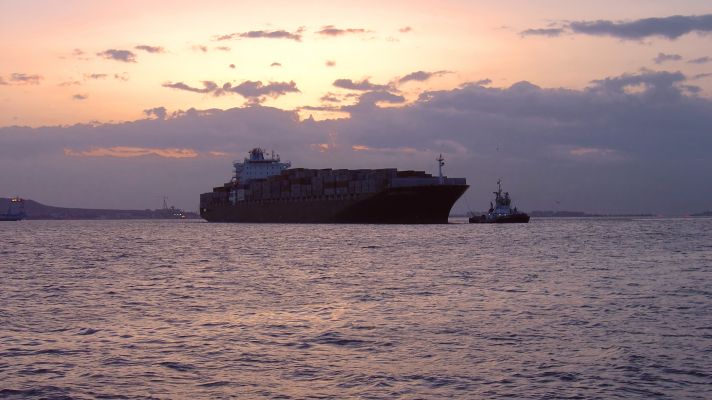The novel coronavirus has largely shutdown the powerful China, one of the largest economies of the world. In a market analysis, Dutch bank ABN Amro expects the shipping sector will be one of the industries most impacted.
Shipping is by far the most important mode of transport to ship goods from China to Europe. In China, most seaports and inland shipping terminals have reopened, including the port of Shanghai. However, there are still far fewer ships sailing out than usual.
Many ships carry many thousands of containers. They consume so much fuel that it makes no sense to run a ship with a small number of containers. Normally, there is a steady flow of containers, which means that fully loaded ships leave all the time. Because there is now less cargo as factories and companies in China have been closed over the past two weeks, fewer ships depart and it can take longer for goods to arrive in Europe.
Conversely, fewer ships sail from Europe to China. For Dutch exporters, this may mean that it takes longer to get goods from Europe to China, or that they have to pay higher tariffs.
Transport sector in Europe affected
The transport sector in Europe will also be affected. Fewer containers will be handled in the port of Rotterdam, the largest port in Europe. Companies that transport containers to the hinterland will also be affected, such as inland shipping and road transport. Distribution centres will temporarily receive fewer goods.
Short sea shipping also has less cargo to handle, as a large proportion of Chinese cargo is destined for transit to other ports via short sea shipping.
Container market to recover in second or third quarter
The decline in demand for transport services will have a major impact on tariffs, as can be seen from the Baltic Dry Index, which is now more than thirty per cent lower than a year ago. Only when the Chinese industry is up and running again will the container market be able to recover. This is expected to be in the second or third quarter.
Other segments, such as tankers, are also likely to suffer from low tariffs, for example if Chinese demand for oil-related products decreases.
Shift to rail or air?
Shipping may also lose some of its cargo to rail or air. As transport by train takes two weeks and by plane one day as opposed to shipping’s six weeks, customers and suppliers may seek to catch up using a faster mode of transport. ABN Amro points out, however, that train and air traffic are also seriously disrupted.
The Chinese city of Wuhan, where tens of thousands of people are infected, is an important logistics hub, including for rail transport. As a result, a lot of trains have been blocked until Monday 10 February. After that, the trains will most likely be fully booked until March.
It is also highly questionable whether trucks and drivers are available to transport goods to the rail terminals. Many drivers are still at home by government order.
Air freight is also disrupted. Normally a lot of goods – e.g. urgent shipments of certain parts or packages ordered over the Internet – are transported in the hold of passenger planes. Because of the virus, almost all passenger flights to and from mainland China have been cancelled.








